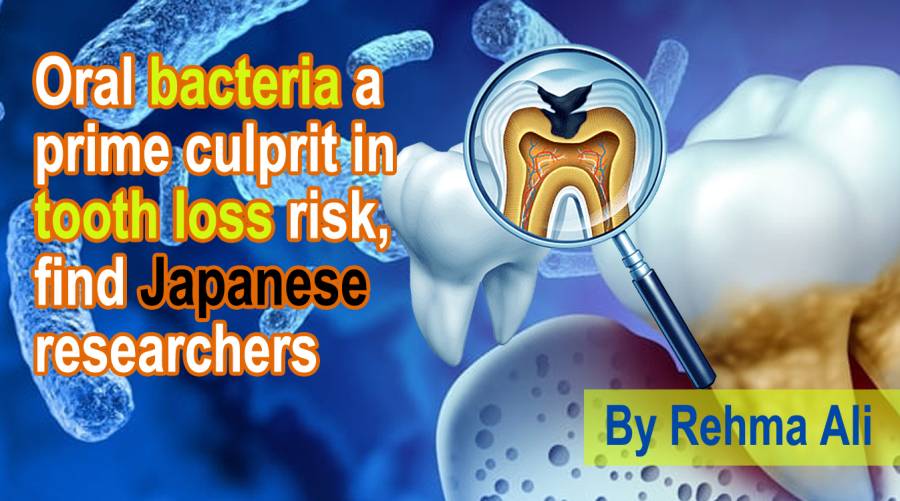
Periodontitis, a severe gum infection notorious for its association with tooth loss and other health complications, has posed a persistent challenge for patients and healthcare professionals. Despite concerted efforts, its effective management remains elusive, primarily due to an incomplete understanding of the associated risk factors.
In a recent study originating from Japan, researchers have shed light on the key role of the oral microbiome over an individual's genetic makeup in the development of this debilitating condition, promising a paradigm shift in the strategies for diagnosis and treatment.
Periodontitis causes inflammation and weakening of the supporting structures of teeth, resulting from bacterial infection. The oral cavity hosts a diverse array of microorganisms, including bacteria that typically maintain a mutually beneficial or neutral relationship with their host but can also trigger various diseases.
The formation of bacterial "biofilms" has long been linked to the development of infections like periodontitis. Given the inadequacies of existing treatment options, there is an urgent need to deepen our understanding of the disease's initiation and progression.
As per the study published in the International Journal of Environment and Public Health Research, a team of researchers led by Assistant Professor Naoki Toyama from Okayama University, Japan, promises to chart new courses for periodontitis treatment.
Individual physiology plays a key role in infection development, with genetic variations among individuals contributing to differing susceptibility levels to specific pathogens and the likelihood of developing certain diseases.
In their study, Dr Toyama and his colleagues focused on the microbes associated with periodontitis and the host genetic factors potentially facilitating its onset. Dr Toyama explained their research motivation, stating, "Numerous studies on periodontitis have suggested that the disease's development is linked to the oral microbiome's nature and genetic 'polymorphism,' the most prevalent form of genetic variation among individuals. However, no study has concurrently evaluated the significance of these dual risk factors in disease development."
Consequently, the team embarked on a cross-sectional study involving genotypic analysis of 14,539 participants and the collection of saliva samples from 385 individuals. Ultimately, 22 individuals were retained for statistical analysis, categorized into "periodontitis" and "control" groups based on their periodontal health.
The team discovered a significant difference in the "β-diversity" of microbial communities, indicating the ratio between regional and local species diversity, between the periodontitis and control groups. Moreover, they attributed the presence of certain bacterial species, such as P. gingivalis, and bacterial families like Lactobacillaceae and Desulfobulbaceae, to periodontitis.
In contrast, they found no conclusive relationship between genetic polymorphism and the development of periodontitis. Drawing from these insights, the researchers concluded that our oral microbiome wields a more substantial influence on periodontitis status than our genetic makeup.
Dr Toyama says, "The revelation that periodontitis prevalence is linked more to the composition of an individual's oral microbiome than their genetic identity should motivate clinicians to prioritize microbiome assessment over host factors during routine periodontal examinations. This, in turn, paves the way for tailored treatment strategies for periodontitis."
These findings underscore the importance of regular tooth cleaning in preventing the onset of periodontitis. Patients and healthcare providers alike are encouraged to embrace these discoveries as they herald a new era in the fight against tooth loss and periodontal diseases.

By Rehma Ali
Rehma Ali is a highly skilled creative content writer with over four years of dedicated experience in the healthcare industry. Her expertise extends to crafting engaging articles and blog posts on intricate medical subjects, all aimed at advancing health awareness and knowledge within the ...

